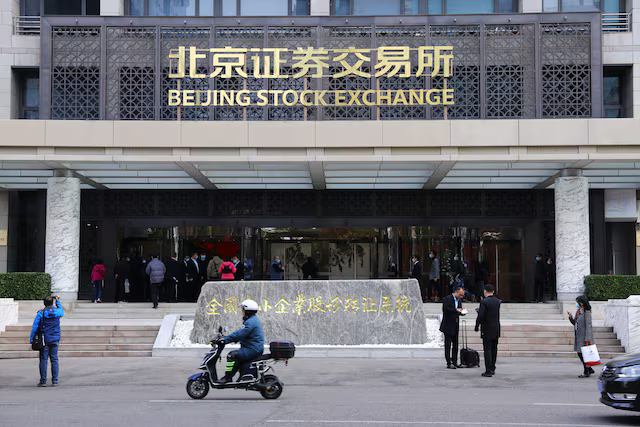Asian stock markets gained on Tuesday, tracking a rebound in Wall Street equities, as US Treasury yields and the dollar retreated from recent multi-month highs.
Traders are closely watching developments surrounding President-elect Donald Trump’s cabinet appointments, as well as the potential direction of US economic policy under his administration.
Tech shares led the gains in Asia, mirroring the recovery in US equities following steep losses last week. However, caution remained as investors await Nvidia’s earnings report on Wednesday, which could set the tone for the near-term market direction.
US Treasury yields extended their overnight declines, with the two-year yield dipping to 4.278% and the 10-year yield edging down to 4.412%. This softness in yields contributed to a pullback in the dollar, which had recently surged to its highest levels in a year. The dollar index, which tracks the currency against a basket of six major peers, held steady at 106.20, just above Monday’s low.
Investor sentiment has been influenced by shifting expectations for US Federal Reserve rate cuts. While earlier in the month, markets were pricing in a higher likelihood of a quarter-point interest rate cut in December, recent data on the resilience of the US economy has led to a scaling back of these expectations. Analysts are also factoring in the potential impact of Trump’s fiscal policies, including higher tariffs and increased spending, which could limit the Fed’s room for rate cuts.
In Asia, Japan’s Nikkei index rose 0.2%, while South Korea’s Kospi and Australia’s ASX 200 each gained 0.1%. Hong Kong’s Hang Seng climbed 0.8%, and China’s CSI 300 index advanced by 0.3%. US stock futures pointed lower, after a modest 0.4% advance in the S&P 500 overnight.
The focus on policy appointments continues to shape market sentiment. Trump’s recent appointments to health and defense positions have stirred speculation, but key economic roles, such as the Treasury secretary and trade representative, remain unfilled. These positions are critical for financial markets as traders try to gauge the impact of Trump’s policies on international trade, inflation, and global geopolitics.
Geopolitical tensions, particularly related to the Russia-Ukraine conflict, have also affected commodity markets. Gold prices held steady around $2,614.80 after a strong rally on Monday, driven by a weakening dollar and concerns over the escalating situation in Ukraine. Oil prices continued their upward trend, with Brent crude gaining 7 cents to $73.37 per barrel, and US West Texas Intermediate crude rising 8 cents to $69.26, bolstered by geopolitical risks and a power outage affecting a major oil field in Norway.
As markets digest these factors, attention will turn to key economic events this week, including earnings reports, housing data, and central bank speeches. Nvidia’s earnings report on Wednesday is expected to be a key event, with traders looking for clues on the near-term direction for tech stocks. Meanwhile, investors in Asia are reassessing the outlook for China’s economy, particularly in light of persistent deflationary pressures and the geopolitical risks surrounding the region.









